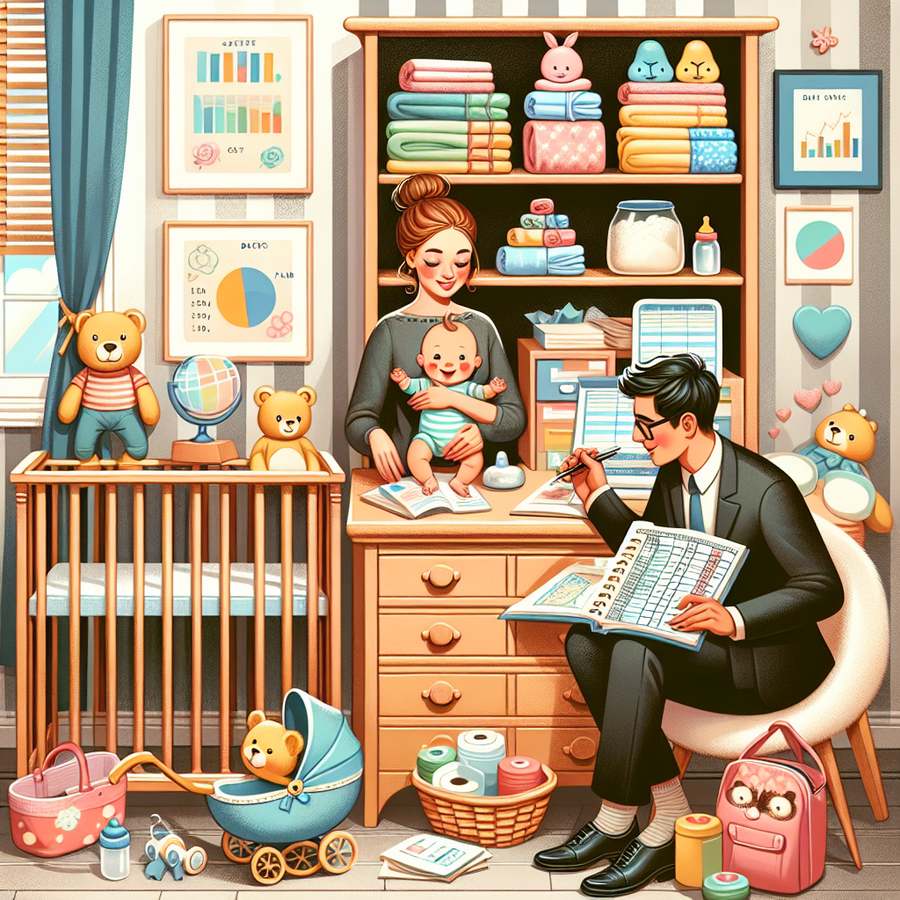Creating a budget for baby essentials in the first year is an essential step for new and expecting parents. The arrival of a new family member is filled with joy, excitement, and, let’s face it, a fair share of expenses. From diapers to cribs, and everything in between, the list of necessities can seem endless. But fear not! With careful planning and smart strategies, you can navigate this new financial landscape without breaking the bank.
Understanding the Costs of Baby Essentials
Before diving into budget creation, it’s crucial to understand what baby essentials you’ll need in the first year. These range from one-time purchases, like a crib or stroller, to recurring expenses, such as diapers and baby formula. It’s also important to consider unexpected costs, such as medical expenses or an increased need for convenience items. A comprehensive list will serve as the foundation of your budgeting efforts.
Research is key when estimating the costs of these essentials. Utilizing online resources and talking to experienced parents can provide insight into what products are must-haves and which ones you can skip. Remember, every family is different, so tailor your list to suit your specific needs and lifestyle. For further guidance, this detailed guide offers a breakdown of costs associated with baby essentials in the first year.
Creating a Budget for Baby Essentials in the First Year
Now that you have a clear understanding of the essentials, it’s time to create your budget. Start by listing all expected expenses, both one-time and recurring. Then, compare this list against your current income and savings to determine how much you can realistically allocate to baby essentials. Remember to account for changes in income if one parent plans to take extended leave from work.
Creating a separate savings account for baby expenses can help you track spending and save for bigger purchases. Look for ways to cut costs without compromising on quality, such as buying some items second-hand, accepting hand-me-downs, or taking advantage of sales and discounts. Additionally, consider setting aside a small emergency fund for unforeseen expenses that may arise. For more budgeting tips, explore financial planning tips for new parents.
Prioritizing Your Spending on Baby Essentials
With a budget in place, prioritizing spending becomes the next crucial step. Not all baby essentials are created equal, and identifying which items are truly necessary can help you make smarter financial decisions. For instance, investing in a high-quality crib or car seat is more important than splurging on designer baby clothing.
Additionally, consider the long-term value of your purchases. Items that can grow with your child, such as convertible cribs or adjustable high chairs, may have a higher upfront cost but save money in the long run. Don’t forget to leverage resources like advice for new parents adopting a baby, which can offer unique perspectives on prioritizing expenses.
In conclusion, creating a budget for baby essentials in the first year is a crucial task that requires research, planning, and a bit of creativity. By understanding the costs involved, making a detailed budget, and prioritizing your spending, you can ensure that your little one’s first year is as financially stress-free as possible. Embrace this exciting time in your life with the confidence that you are well-prepared to provide for your new bundle of joy.
For more insights on navigating parenthood, including tips on balancing work and new motherhood or single parenting tips for raising an infant, be sure to explore our extensive library of articles created to support you on your parenting journey.













